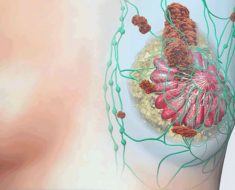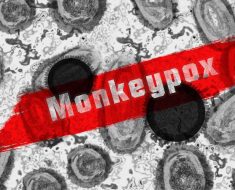City of Hope, a world-renowned independent research and treatment center for cancer, diabetes and other life-threatening diseases, is now recruiting patients for a Phase 2 clinical trial to investigate whether pills containing white button mushroom extract could regulate the immune system, affecting prostate-specific antigen (PSA) levels to either remain stable or decline. Heightened levels of PSA in men may indicate the existence of prostate tumors.
Shiuan Chen, Ph.D., the Lester M. and Irene C. Finkelstein Chair in Biology, has been investigating the potential beneficial effects of white button mushroom (Agaricus bisporus) at City of Hope for about 20 years. His translational preclinical and clinical research has found that this "bioactive food" available in most supermarkets might prevent or slow the spread of prostate and breast cancers. The common fungus appears to block the activity of dihydrotestosterone (DHT), a strong form of the male hormone.
"White button mushroom — like green tea, turmeric, soybean, rosemary and tomato — has been considered a 'superfood' with positive effects on human health," said Chen, co-investigator of the clinical trial. "What we're trying to do is scientifically prove whether the hype is true. If white button mushroom can slow the progression of prostate cancer, we want to know what the active agent is and what biological mechanisms are at work."
City of Hope in Duarte, California, is leading the multisite Phase 2 clinical trial, which will also recruit patients at City of Hope community locations (South Pasadena, West Covina, Rancho Cucamonga) and at John Wayne Cancer Institute in Santa Monica. This National Cancer Institute-funded study will seek to recruit 132 male participants who have recurrent prostate cancer following local therapy or who are undergoing active surveillance and have not yet received any therapy.
"This trial may reveal a possible alternative to or may obviate or delay the need for local or salvage treatments for prostate cancer. These standard-of-care therapies may cause significant short-term and long-term side effects such as incontinence and erectile dysfunction, or weight gain, hot flashes and osteoporosis," said Clayton Lau, M.D., the Pauline & Martin Collins Family Chair in Urology and director of City of Hope's Prostate Cancer Program. Lau is principal investigator of the trial.
Results from the Phase 1 white button mushroom trial indicated that white button mushroom extract is safe and potentially effective against prostate cancer. About 36% of study participants had some decline in PSA levels after three months of white button mushroom tablet intake, and no dose-limiting toxicities were observed. There were no negative side effects. Androgen deprivation therapy, on the other hand, is an approved therapy with side effects including fatigue, weight gain, muscle weakness, hot flashes, loss of libido, increased risk of diabetes and cardiovascular problems — all these side effects, yet androgen deprivation therapy is not curative.
White button mushroom consumption seemed to stimulate the immune system into action and limited the growth of prostate cancer cells. Upon further research in the laboratory, City of Hope scientists found that white button mushrooms contain chemicals that can block the activity of the androgen receptor in animal models, indicating this common fungus could reduce PSA levels. This research was recently published in The Journal of Nutritional Biochemistry.
The objective of the Phase 2 trial is to assess if recurrent prostate cancer patients experience any PSA reduction at three months. The experimental groups will consume 14 grams of the mushroom-powder tablet per day — roughly 2/3 of a container of white button mushrooms purchased from the supermarket. Tablets will be prepared from freeze-dried powder of white button mushrooms. Those in the control group (observation only) will be able to receive the mushroom tablet after three months.
In addition, for 12 months, the scientists will assess the relative change in PSA levels in men under active surveillance who have not received any localized prostate cancer treatment. Furthermore, scientists will look at biopsy material to identify what molecular changes are linked to intake of white button mushrooms.
People interested in enrolling in this clinical trial can visit CityofHope.org/research/find-a-clinical-trial.
City of Hope
Posted in: Men's Health News | Drug Trial News
Tags: Androgen, Androgen Deprivation Therapy, Antibodies, Antigen, Biochemistry, Biopsy, Bone, Bone Marrow, Cancer, Cancer Treatment, Cell, Clinical Trial, Diabetes, Dihydrotestosterone, Drugs, Erectile Dysfunction, Fatigue, Genomics, Green Tea, Health Care, Hormone, Immune System, Immunotherapy, Incontinence, Insulin, Laboratory, Libido, Muscle, Mushroom, Osteoporosis, pH, Preclinical, Prostate, Prostate Cancer, Prostate-Specific Antigen, Receptor, Research, Tea, Tomato, Turmeric, Urology
Source: Read Full Article





